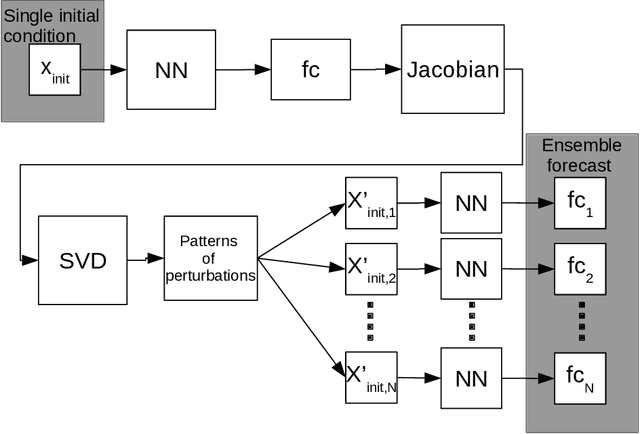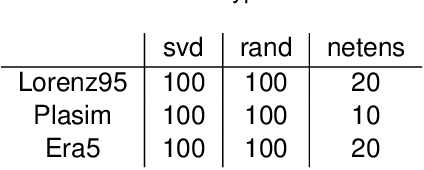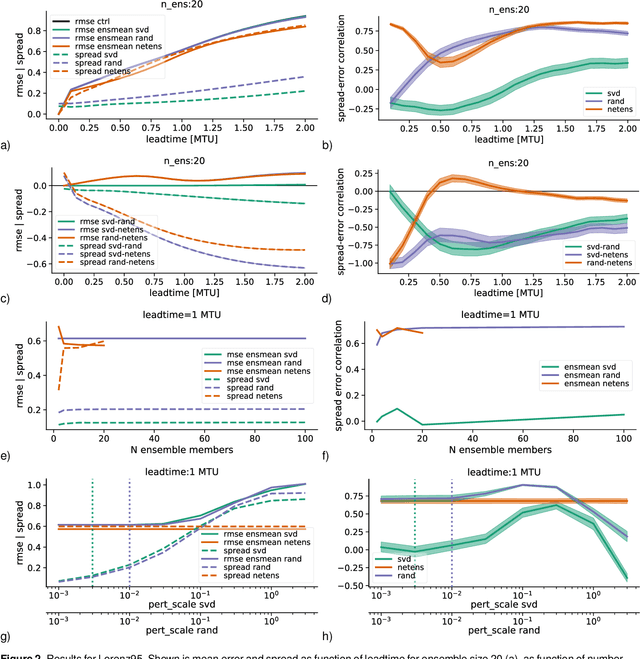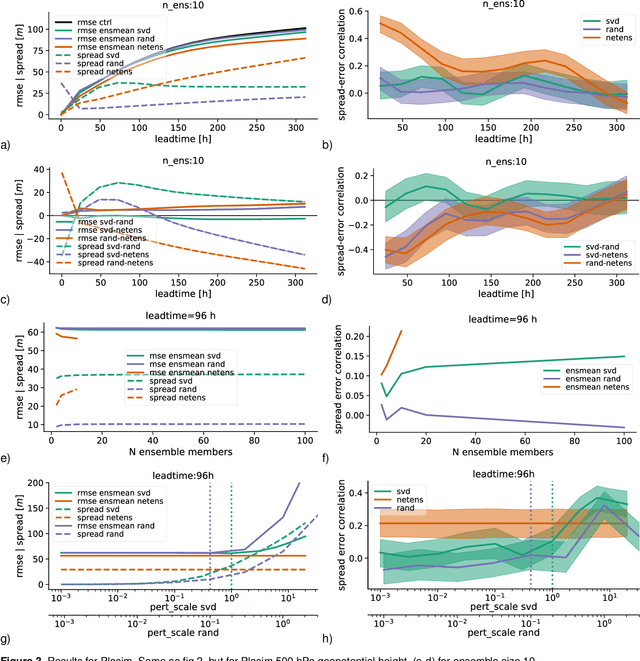Gabriele Messori
Climate-Eval: A Comprehensive Benchmark for NLP Tasks Related to Climate Change
May 24, 2025Abstract:Climate-Eval is a comprehensive benchmark designed to evaluate natural language processing models across a broad range of tasks related to climate change. Climate-Eval aggregates existing datasets along with a newly developed news classification dataset, created specifically for this release. This results in a benchmark of 25 tasks based on 13 datasets, covering key aspects of climate discourse, including text classification, question answering, and information extraction. Our benchmark provides a standardized evaluation suite for systematically assessing the performance of large language models (LLMs) on these tasks. Additionally, we conduct an extensive evaluation of open-source LLMs (ranging from 2B to 70B parameters) in both zero-shot and few-shot settings, analyzing their strengths and limitations in the domain of climate change.
Ensemble neural network forecasts with singular value decomposition
Feb 13, 2020



Abstract:Ensemble weather forecasts enable a measure of uncertainty to be attached to each forecast by computing the ensemble's spread. However, generating an ensemble with a good error-spread relationship is far from trivial, and a wide range of approaches to achieve this have been explored. Random perturbations of the initial model state typically provide unsatisfactory results when applied to numerical weather prediction models. Singular value decomposition has proved more successful in this context, and as a result has been widely used for creating perturbed initial states of weather prediction models. We demonstrate how to apply the technique of singular value decomposition to purely neural-network based forecasts. Additionally, we explore the use of random initial perturbations for neural network ensembles, and the creation of neural network ensembles via retraining the network. We find that the singular value decomposition results in ensemble forecasts that have some probabilistic skill, but are inferior to the ensemble created by retraining the neural network several times. Compared to random initial perturbations, the singular value technique performs better when forecasting a simple general circulation model, comparably when forecasting atmospheric reanalysis data, and worse when forecasting the lorenz95 system - a highly idealized model designed to mimic certain aspects of the mid-latitude atmosphere.
 Add to Chrome
Add to Chrome Add to Firefox
Add to Firefox Add to Edge
Add to Edge